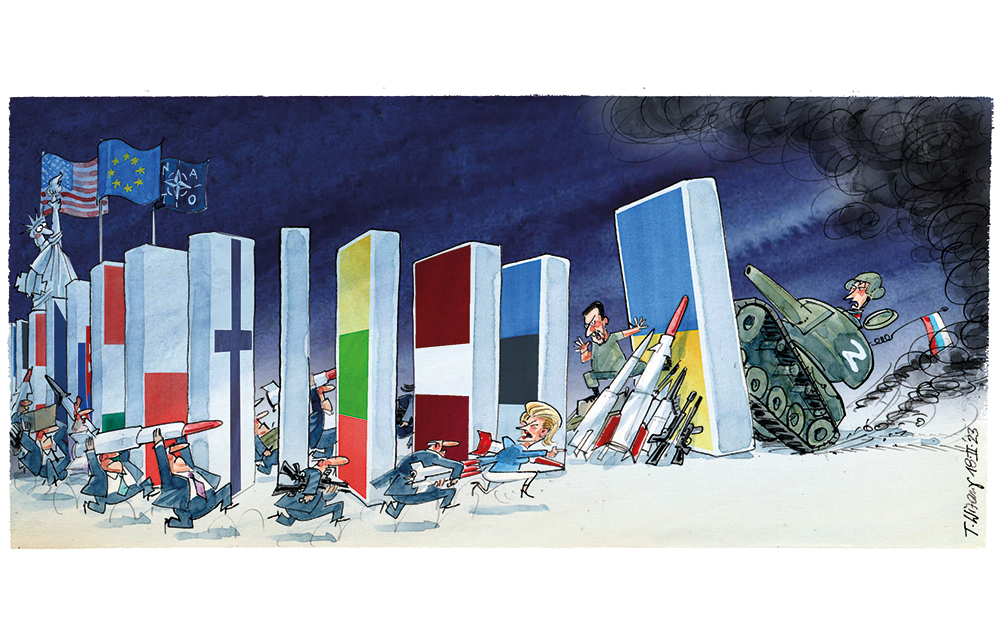Kyiv
General Valeriy Zaluzhny, stocky, forceful, apple-cheeked, sits at the desk in Kyiv from which he commands all Ukraine’s armed forces. I ask him what they need from the West. First, air defence. With a twinkle in his eye, he unzips his khaki fleece to reveal a garish T-shirt demanding ‘F-16s!’ Next on his list are long-range missiles such as the American ATACMS and the Franco-British Storm Shadow, so they can hit Russian targets beyond the range of their current armoury. Now the General jumps up, disappears behind a glass-fronted office cupboard into an improvised sleeping area, and returns with another T-shirt, this time calling for missiles. It seems he has a T-shirt for every weapon system.
Approaching the first anniversary of Vladimir Putin’s full-scale invasion, the Ukrainian forces are running dangerously low on the gauges of ammunition needed for their still mainly post-Soviet weaponry, as Russia sends wave after wave of criminal cannon fodder against towns like Bahmut. The Ukrainians don’t yet have anything like enough of the Nato-standard kit to replace the older gear: 152mm calibre for post-Soviet guns, 155mm for Nato ones – on that difference of three millimetres the future of Europe may hinge.
Most of Ukraine’s tanks are post-Soviet models. Without ammunition, these are ‘not tanks but tractors’
There’s a similar issue with tanks. Although some German-made Leopards and British Challengers are at last coming through, most of Ukraine’s tanks are still post-Soviet models. Without ammunition, Zaluzhny tells me, these would be ‘not tanks but tractors’.
Talking to the Ukrainian commander-in-chief, who is every inch the soldier’s soldier, you understand that the impassioned requests for more weaponry made by President Volodymyr Zelensky on his lightning tour of London (‘wings for freedom’), Paris and Brussels are not simply a kind of rhetorical bidding contest. They reflect hard, precise military necessities. And a week spent in and around Kyiv, followed by some days at the Munich Security Conference, makes it clear that the next six months could be make-or-break time for Ukraine.







Comments
Join the debate for just £1 a month
Be part of the conversation with other Spectator readers by getting your first three months for £3.
UNLOCK ACCESS Just £1 a monthAlready a subscriber? Log in